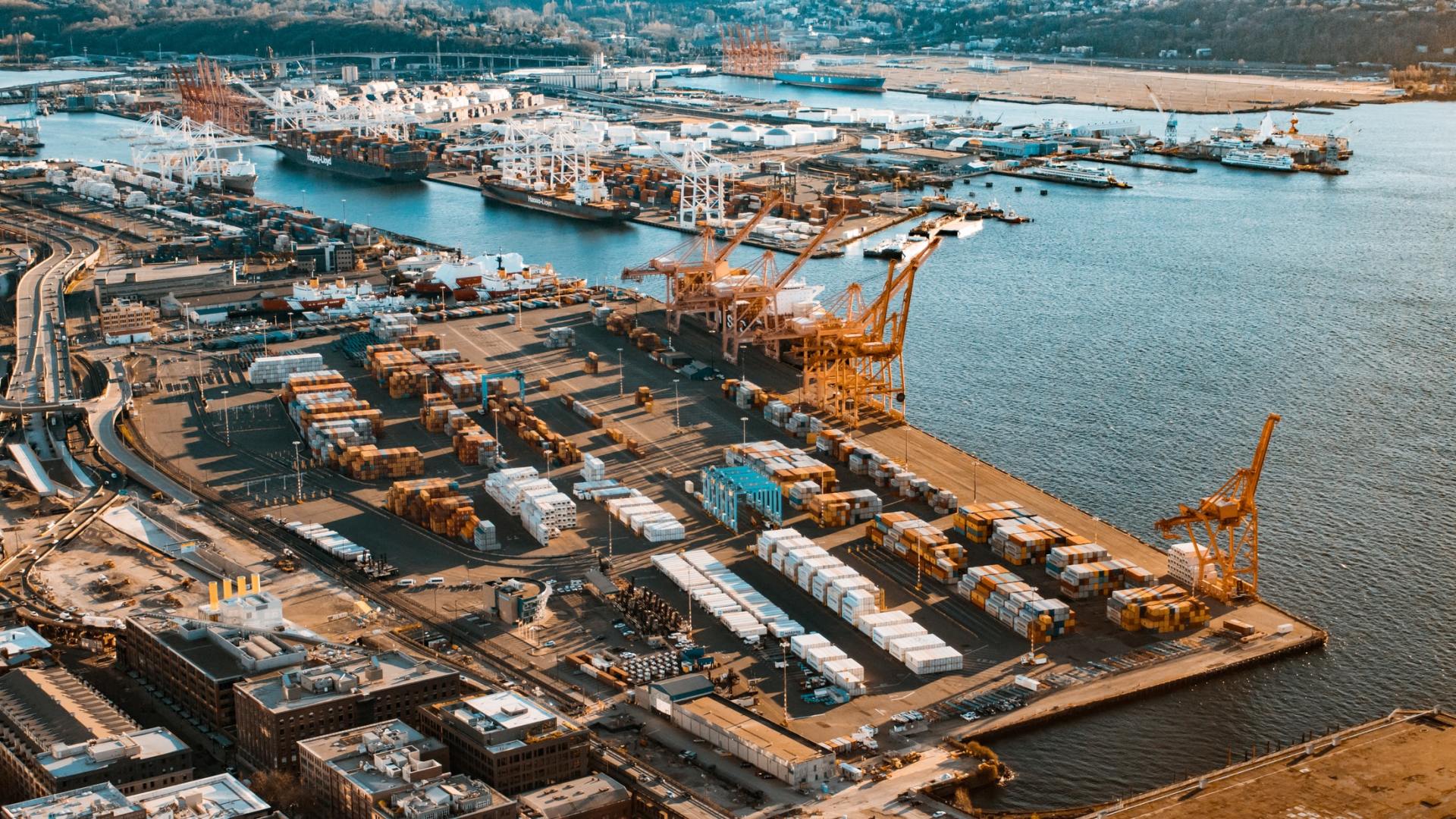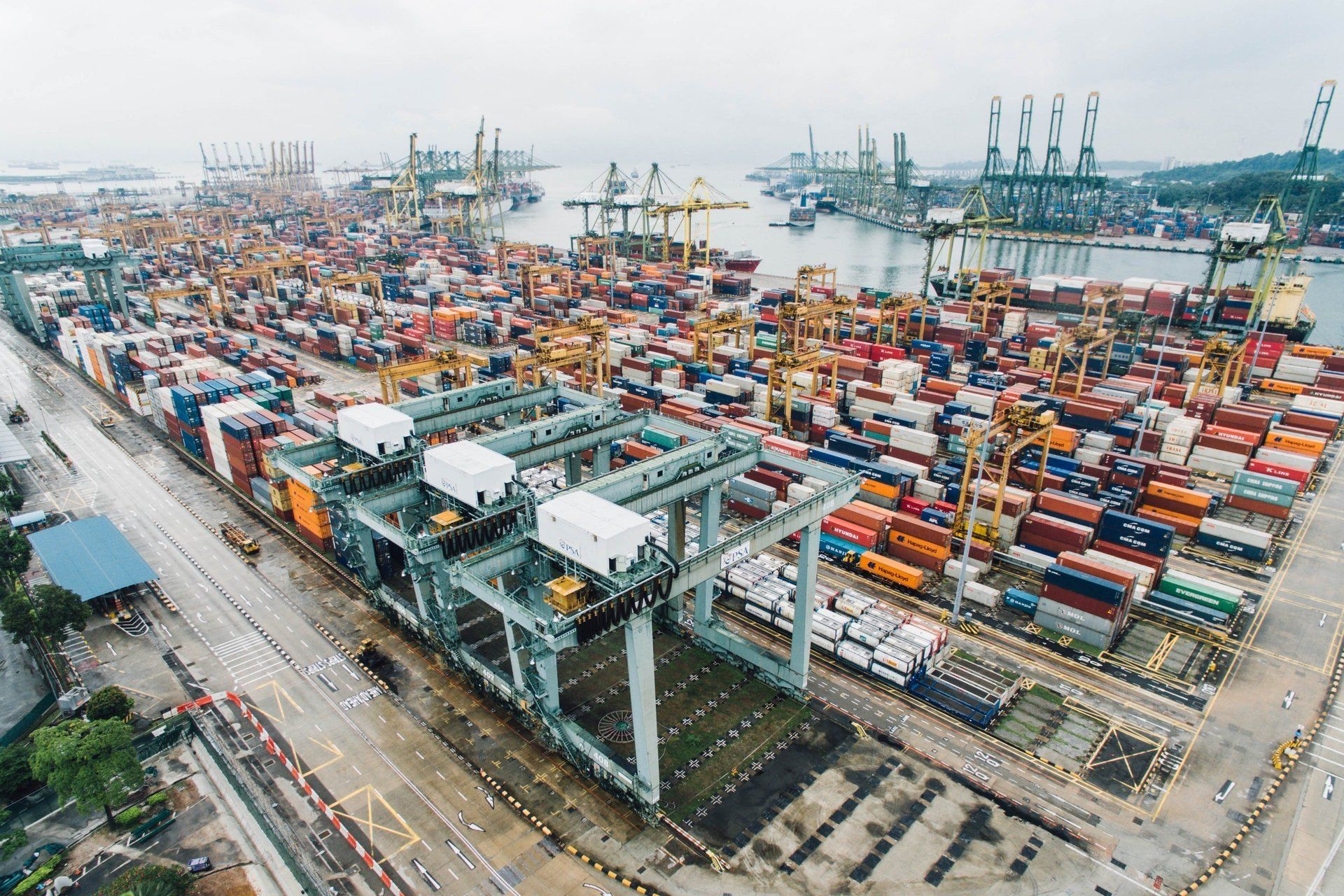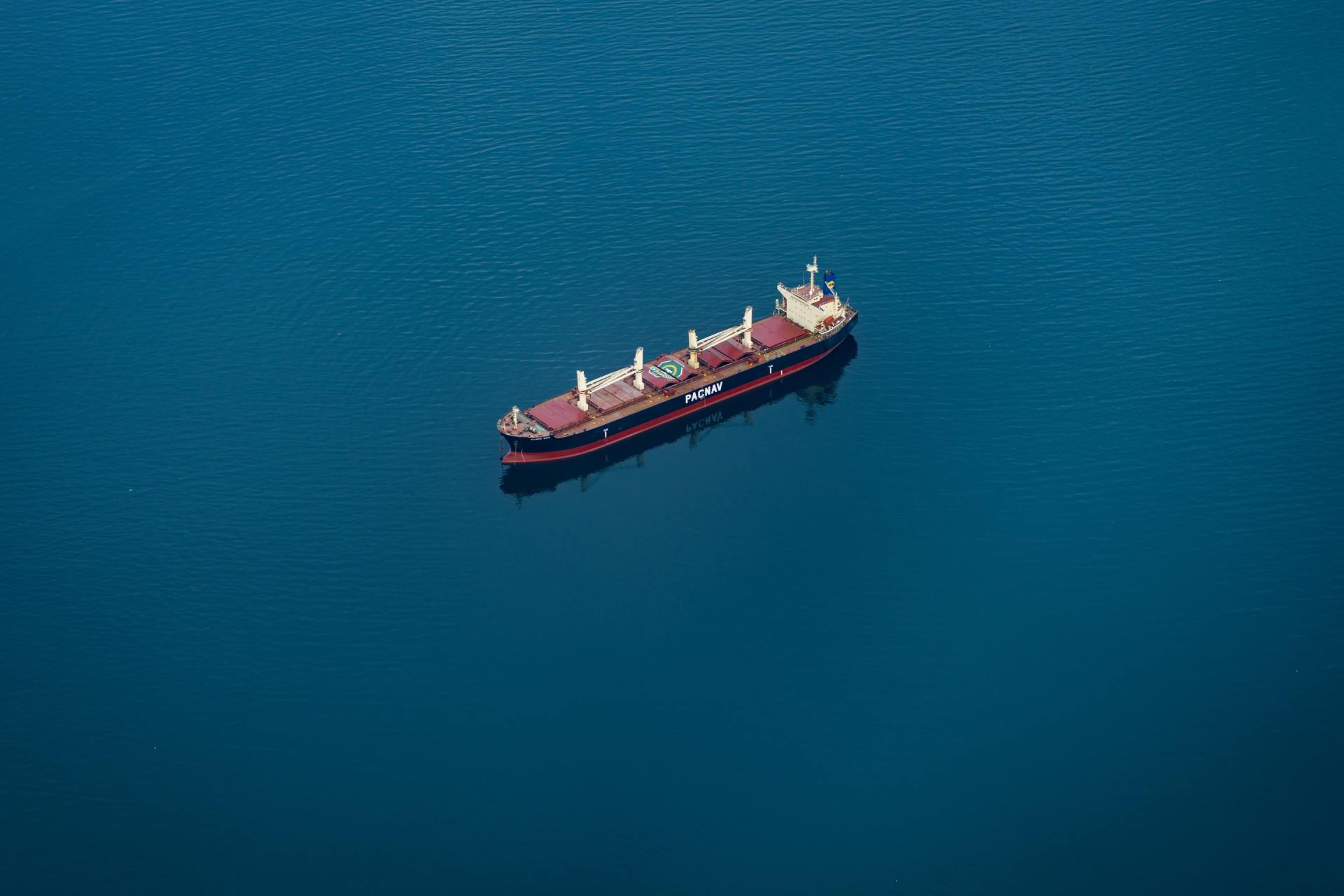Blog Layout
Incoterms 101
Jul 27, 2020
A Guide to Incoterms 2020
Incoterms make international commercial trade go round. Issued by the International Chamber of Commerce (ICC), these 11 universal terms are paramount to international trade and define key elements of global contracts of sale as well as discretionary rules and best practices for all parties involved. As a result, familiarizing yourself with Incoterms is pivotal for smoother transactions in the industry.
2020 has welcomed a new set of Incoterms designed to separate terms by mode of transport. Below is a guide to Incoterms 2020, grouped by its corresponding method of transport.
The seven Incoterms 2020 rules for any mode(s) of transport:
EXW - Ex Works (insert place of delivery)
The buyer assumes all risk and cost when collecting the goods from the seller. The seller is only responsible for having the goods present to the buyer’s discretion. This means that it is not under the seller’s responsibility to act as a shipper.
FCA - Free Carrier (Insert named place of delivery)
The seller is responsible for making their goods available to the buyer, loading the goods, and delivering the goods to the port while meeting security requirements for export clearance.
CPT - Carriage Paid to (insert place of destination)
Once the goods are cleared for export by the seller and delivered to the carrier, the risk transfers to the buyer. Although the seller bears transportation costs, it is not obliged to acquire insurance costs.
CIP - Carriage and Insurance Paid To (insert place of destination)
Similar to CPT, the seller is responsible for clearing the goods for export and delivering them to its arranged carrier where the risk will be transferred to the buyer. However, the seller bears the transportations costs and insurance costs
DAP - Delivered at Place (insert named place of destination)
The seller clears the goods for export, delivers them, and is responsible for the risks and costs associated with said actions. The buyer covers all costs and risks connected to unloading the goods as well as clearing them for import into the agreed upon destination.
DPU - Delivered at Place Unloaded (insert of place of destination)
This term tasks the seller with unloading the goods and is commonly used for consolidated containers with numerous consignees. The seller is responsible for clearing the goods for export as well as assuming the risks linked to delivering and unloading the goods at the named destination. Afterwards, the buyer is the bearer for all risks and costs including those associated with clearing for import.
DDP - Delivered Duty Paid (Insert place of destination).
The seller is responsible for all risks and costs correlated with delivering the goods to the agreed-upon destination ready for unloading and cleared for import. The seller is not responsible for unloading.
The Four Incoterms 2020 rules for Sea and Inland Waterway Transport:
FAS- Free Alongside Ship (name port of shipment)
The seller clears the goods for export and delivers them when the goods are placed alongside the vessel. The risks and costs are then covered by the buyer from that point forward.
FOB- Free on Board
The seller clears the goods for export and delivers them when the goods are on board the vessel appointed by the buyer. When the goods are on the vessel, the buyer assumes all risk and costs.
CFR- Cost and Freight
The goods are delivered on the vessel by the seller. The seller covers the cost of freight to the agreed-upon destination. Once delivered on board, the buyer bears all risks.
CIF- Cost, Insurance and Freight
This term is similar to CFR however, the seller must also acquire insurance coverage (minimum level of insurance) against the buyer’s risks to the named destination. Once at the port of destination, the buyer is responsible for unloading and clearing the goods for import.
Final Thoughts
Incoterms, while seemingly confusing at first, can clarify any misunderstandings and confusions that may be found in contracts. Although optional, these terms are crucial to conducting International trade and are designed to protect all parties involved by reducing the risk of complications and establishing a global language that has been simplifying international trade since 1921.
Want to learn more about essential logistics, transportation, and cargo terms? Click here
to check it out!
References:
“Incoterms® 2020 - ICC - International Chamber of Commerce.” ICC, iccwbo.org/resources-for-business/incoterms-rules/incoterms-2020/.

28 Aug, 2020
The 2020 COVID-19 pandemic has left no economy untouched worldwide. With over 1.2 million COVID-19 cases as of August 27, Africa’s journey to flatten the curve hasn’t been an easy one. Limited testing and incomplete data fail to reveal accurate numbers regarding the impact COVID-19 has had on individual countries and their economies. Now, as many countries in Europe, Asia, and North America begin reopening procedures, it begs the question, where does Africa stand? Africa’s supply chain like many supply chains around the world, has faced drastic delays and disruptions that have led to a massive fall in trade volume. For the first time in 25 years, Africa’s economy is expected to decline after a streak of economic prosperity. Trade volumes are expected to drop 8% for exports and a whopping 16% for imports. These drops along with a rise in international trade costs due to border closures and increased transportation costs have deeply affected African supply chains. The Road to Recovery For Africa, the road to recovery largely depends on Europe's recovery seeing as over 60% of African value added in global exports is directly linked to European production. In other words, the faster Europe recovers, the faster Africa recovers. The used clothing and vehicle industry in particular has been heavily impacted due to delays related to pandemic restrictions. Although some African countries began loosening restrictions earlier this year, surges in COVID-19 cases have led to tighter restrictions once again. As a result, Africa's road to recovery is expected to be slow and rocky in the coming months. About Expotrans As one of the largest exporters to Africa in Canada, Toronto-based Expotrans has over 24 years of experience moving freight to Africa. Expotrans specializes in moving second-hand clothing, used vehicles, scrap metal, and machinery across Africa. Looking to move goods into Africa? Contact our team of experienced customer service agents for more information or click here to request a quote.

25 Aug, 2020
After 12 days of striking, Montreal port workers reached an agreement with The Maritime Employers Association on Aug. 21st. This newfound agreement stems from an assembly vote held by The Maritime Employers Association that found that 87% of port workers vote in favour of a renewed contract since the previous contract expired in 2018. Workers at the Port of Montreal and management have agreed that port workers will be given 7 months to reach a collective agreement. Until then, work will resume normally and port activity will once again recommence. During the 12-day strike, imports and exports were not being received due to a halt in all port activity. Ships were redirected towards neighbouring ports in Halifax, St. John, and New York City while a truce was reached. This led to major delays that affected nearly 6,300 businesses. It is estimated that it will take 4 weeks to clear backlog associated with the strike. If a collective agreement is not reached within a 7 month period, port workers will once strike on March 20, 2021. What Expotrans is Doing As customer service leaders and consulting experts, we are dedicated to aiding our clients with any concern related to managing delays and supply chain solutions. We welcome all inquires to our customer service team and one of our customer service agents will be happy to help.

13 Aug, 2020
Canada’s second largest port, the Port of Montreal, has shut down indefinitely as 1,125 longshore workers enter an unlimited strike. While there have been a series of temporary strikes in the last 6 weeks, Aug. 10 marked the official start of an unlimited strike until an agreement is met between CUPE Local 375 and the Maritime Employers Association. The strike was largely prompted by longshore workers’ dissatisfaction with work scheduling and recent salary changes. All port activity will come to a halt, with the exclusion of containers that contain medical supplies. Strike-related activity in the last few weeks has already diverted ships to neighbouring ports in St. John, N.B, New York City, and Halifax, affecting nearly 6,300 businesses and 19,000 jobs connected to the port. As a result, delays should be expected while an agreement comes to fruition. A task that has not been completed since the previous agreement expired in 2018. What Expotrans is Doing Expotrans is committed to staying up-to-date and keeping our clients informed as the situation develops. For any advice on how to manage this disruption, please reach out to one of our customer service agents and we will be happy to help.
Want more information?

© 2024
Expo-trans International
Latest news

28 Aug, 2020
The 2020 COVID-19 pandemic has left no economy untouched worldwide. With over 1.2 million COVID-19 cases as of August 27, Africa’s journey to flatten the curve hasn’t been an easy one. Limited testing and incomplete data fail to reveal accurate numbers regarding the impact COVID-19 has had on individual countries and their economies. Now, as many countries in Europe, Asia, and North America begin reopening procedures, it begs the question, where does Africa stand? Africa’s supply chain like many supply chains around the world, has faced drastic delays and disruptions that have led to a massive fall in trade volume. For the first time in 25 years, Africa’s economy is expected to decline after a streak of economic prosperity. Trade volumes are expected to drop 8% for exports and a whopping 16% for imports. These drops along with a rise in international trade costs due to border closures and increased transportation costs have deeply affected African supply chains. The Road to Recovery For Africa, the road to recovery largely depends on Europe's recovery seeing as over 60% of African value added in global exports is directly linked to European production. In other words, the faster Europe recovers, the faster Africa recovers. The used clothing and vehicle industry in particular has been heavily impacted due to delays related to pandemic restrictions. Although some African countries began loosening restrictions earlier this year, surges in COVID-19 cases have led to tighter restrictions once again. As a result, Africa's road to recovery is expected to be slow and rocky in the coming months. About Expotrans As one of the largest exporters to Africa in Canada, Toronto-based Expotrans has over 24 years of experience moving freight to Africa. Expotrans specializes in moving second-hand clothing, used vehicles, scrap metal, and machinery across Africa. Looking to move goods into Africa? Contact our team of experienced customer service agents for more information or click here to request a quote.

25 Aug, 2020
After 12 days of striking, Montreal port workers reached an agreement with The Maritime Employers Association on Aug. 21st. This newfound agreement stems from an assembly vote held by The Maritime Employers Association that found that 87% of port workers vote in favour of a renewed contract since the previous contract expired in 2018. Workers at the Port of Montreal and management have agreed that port workers will be given 7 months to reach a collective agreement. Until then, work will resume normally and port activity will once again recommence. During the 12-day strike, imports and exports were not being received due to a halt in all port activity. Ships were redirected towards neighbouring ports in Halifax, St. John, and New York City while a truce was reached. This led to major delays that affected nearly 6,300 businesses. It is estimated that it will take 4 weeks to clear backlog associated with the strike. If a collective agreement is not reached within a 7 month period, port workers will once strike on March 20, 2021. What Expotrans is Doing As customer service leaders and consulting experts, we are dedicated to aiding our clients with any concern related to managing delays and supply chain solutions. We welcome all inquires to our customer service team and one of our customer service agents will be happy to help.
